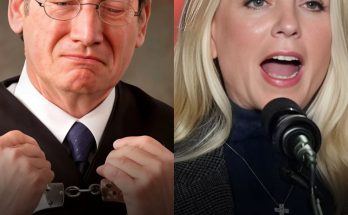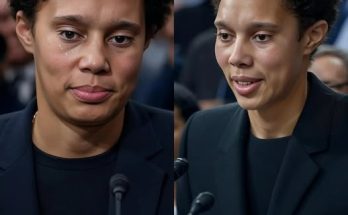In a fiery and unrelenting confrontation on live television, Scott Jennings exposed what he called CNN’s blatant hypocrisy surrounding issues of free speech and women’s sports.
The exchange came as CNN host Abby Phillip attempted to frame former President Donald Trump’s CBS lawsuit as a dire “press freedom” crisis.
Jennings, however, was ready with facts and arguments that challenged the network’s narrative and left the panel visibly unsettled.
What followed was a powerful moment of media reckoning that has since gone viral and sparked intense debate across social media and political circles.

Scott Jennings, a former political advisor and outspoken conservative commentator, has long been known for cutting through media spin with blunt honesty.
During the recent CNN segment, he confronted Abby Phillip and other panelists head-on, dismantling their claims point by point.
Jennings highlighted the contradictions in CNN’s stance on free speech, especially when it comes to politically charged topics.
He accused the network of selectively defending “press freedom” only when it suits their agenda, while ignoring or suppressing opposing viewpoints.
One of the most heated parts of the discussion centered around women’s sports and the controversial topic of transgender athletes competing in female categories.
Jennings raised concerns about biological males competing against females and the impact on women’s scholarships and fair competition.
He argued that CNN and similar media outlets have downplayed or dismissed these issues, reflecting a broader pattern of ignoring inconvenient truths in favor of ideological narratives.
This aspect of the debate resonated deeply with many viewers who feel their concerns are often marginalized in mainstream discourse.

Jennings’ critique also touched on the broader theme of media accountability and journalistic integrity.
He challenged CNN’s record on transparency, fairness, and accuracy, pointing out instances where the network allegedly engaged in biased reporting or failed to hold certain figures accountable.
The panel’s attempts to push back were met with Jennings’ relentless fact-based responses, leaving little room for rebuttal.
His performance was praised by supporters as a courageous stand against media manipulation and a defense of free speech principles.
The segment also sparked a wider conversation about the role of lawsuits in protecting reputations and challenging misinformation.
Trump’s lawsuit against CBS, which CNN framed as a threat to press freedom, was presented by Jennings as a legitimate legal effort to address defamation and false claims.
He emphasized that holding media outlets accountable through the courts is a vital part of maintaining journalistic standards and protecting individuals from slander.
This perspective contrasted sharply with the panel’s portrayal of the lawsuit as an attack on the media itself.
Social media response to the confrontation was swift and intense.
Clips of Jennings’ takedown quickly went viral, with supporters applauding his ability to expose CNN’s contradictions and critics defending the network’s editorial decisions.
Many viewers expressed frustration with what they see as a growing media bias that distorts important issues and silences dissenting voices.
Others warned that such polarized exchanges only deepen divisions and undermine constructive public discourse.
This moment between Jennings and CNN reflects a larger cultural and political struggle in the United States.
Questions about free speech, gender identity, media bias, and the role of the press in democracy are at the forefront of national debates.
Jennings’ unfiltered approach and willingness to challenge powerful media institutions have made him a prominent voice for those who feel disenfranchised by mainstream narratives.
At the same time, the backlash highlights the ongoing tensions and challenges faced by news organizations trying to navigate a highly charged and fragmented media landscape.
In conclusion, Scott Jennings’ scorching critique of CNN’s handling of free speech and women’s sports issues has ignited a crucial conversation about media honesty, political correctness, and the boundaries of public discourse.
His confrontation with Abby Phillip and the CNN panel serves as a vivid example of the fierce battles being fought over truth and representation in today’s media environment.
As these debates continue to unfold, the stakes remain high for journalists, commentators, and audiences alike.
Jennings’ fearless challenge reminds us that the fight for balanced and truthful media coverage is far from over—and that the voices willing to speak uncomfortable truths will continue to shape the conversation.



